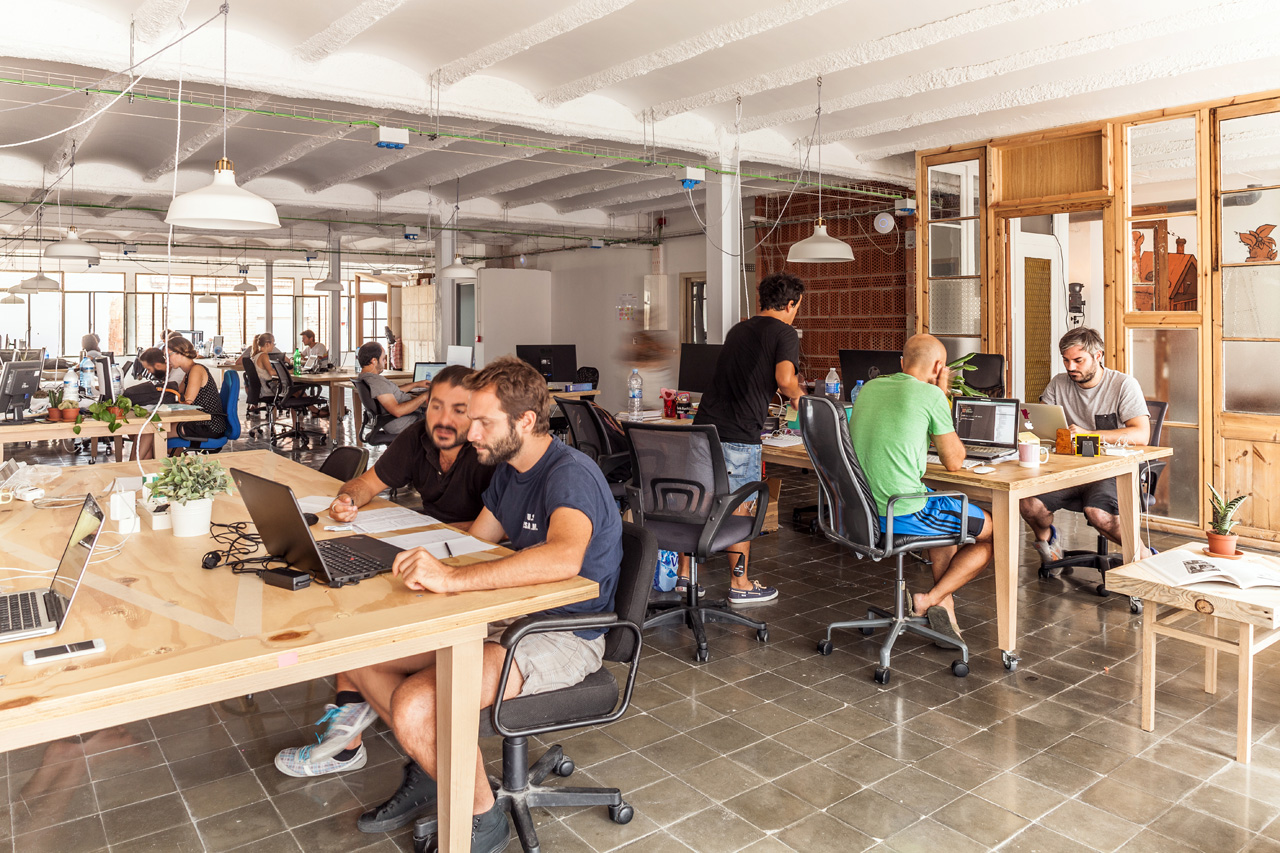JLL Research recently confirmed that Los Angeles ranks third in the United States for commercial real estate occupied by co-working spaces. Not surprisingly, it’s the markets commanding the highest rents where LA co-working companies are setting up shop. For instance, the Westside sub markets, home to the technology sector and venture capital firms, are ripe with new shared work spaces. The rich amenity base of Downtown Los Angeles has also become a popular home for shared workspaces. It’s obvious by now that co-working operators are here to stay. They’ve fast become incubators for next generation tech companies and are gradually becoming an alternative to the conventional office in the commercial real estate market. It’s not uncommon to find several promising companies and other freelance gurus pretty much sub-leasing a shared workspace under one roof rather than lease a space for themselves. So exactly why are millennials workers so in love with Los Angeles co-working spaces?
You’ve likely noticed the increase in shared office spaces in Los Angeles. Co-work spaces have steadily risen in popularity nationwide for the past decade. In 2007, there were only 14 coworking spaces on record. Today, there are over 11,000 with more popping up coast to coast every day. By 2020, it’s projected that there will be more than 26,000 shared workspaces occupied by nearly 4 million workers.
Millennial workers are what’s driving this trend – not just in tech dense Southern California but nationwide as well. Whether they’re remote workers or entrepreneurs, professional millennials are clearly shaping work trends that are here to stay. But why are shared work spaces so appealing to this younger demo of American workers?
Cowork Spaces Are More Affordable
Space at a co-work facility can range from $30 to $450 per month depending on how much is needed. Clearly, this is much more cost efficient for an entrepreneur or a small startup than the standard monthly rent for a full office space in the Los Angeles area.
Allows for an Undivided Focus on Business
Millennial entrepreneurs are visionaries. The growth of their operation requires their focus and undivided attention. Most startups go wrong the moment they get sucked into the world of leasing commercial real estate. Their idea of an office space is often grandeoise and early mistakes are plentiful. Often they’ll rent too much or too little space. They’ll sign on for too long of a lease term. They’ll spend money they aren’t making yet for unnecessary amenities to look cool to prospective new hires or customers/clients. A co-working space gives their business the legitimacy of a physical address – not their home or garage – without needing to dip their toes into the commercial real estate market until it’s necessary and they’re ready.
Strong Networking Opportunities
Dozens to hundreds of talents can walk in and out of a shared office space on any given day. All with uniquely varied talents, backgrounds, and skill-sets. Imagine if you shared a workspace with your LinkedIn network? Where you could tap into a different person’s area of expertise on a daily basis at the water cooler, which may now be a coffee bar, but we digress. Needless to say, co-work spaces are advantageous to the social millennial wanting to expand his or her professional network. You never know what connections can be made or what partnerships or collaborative opportunities can present themselves.
Great for Commitment Phobes
Young people aren’t always the most committal. Unsurprisingly, they’re often hesitant to sign into a long-term office lease. Nor are they in a position to buy commercial real estate. A shared office space is ideal for a commitment phobic entrepreneur or startup that’s unsure of where they’re headed. They can sign up for space at a daily, monthly, or hourly rate based on their needs. They can scale up or down at any time until they eventually get to the point of needing a space of their own.
Startup Support
Many millennials are following through on their desire to start a business of their own. Established tech companies are notorious for having high turnover rates. Great things can happen from suddenly displaced workers with similar backgrounds coming together to form a small team and a startup of their own. This rapid-fire startup creation has increased the demand for startup spaces to accommodate them. Those with smaller budgets and an uncertain future can really benefit from a shared workspace. Networking with likeminded business owners and workers is invaluable.
Trendy Locations
Co-working spaces are typically located in walkable urban hotspots where there’s easy access to hip restaurants and pubs, nightlife/entertainment, and grocery stores. Considering that 62% of millennials surveyed by Nielsen prefer living in an urban-centric location, it’s no surprise they’re drawn to working in such a locale as well.
Unwillingness to Comply to Tradition
Millennials have gradually been dismantling the idea of the traditional office and 9 to 5 work structure. Shared workspaces are a counterpoint to the notion we were all meant to sit at an assigned workstation and cubicle. At a co-work space you’re interacting with a professional network more than you’re dealing with co-workers. It’s new and an alternative to tradition.

